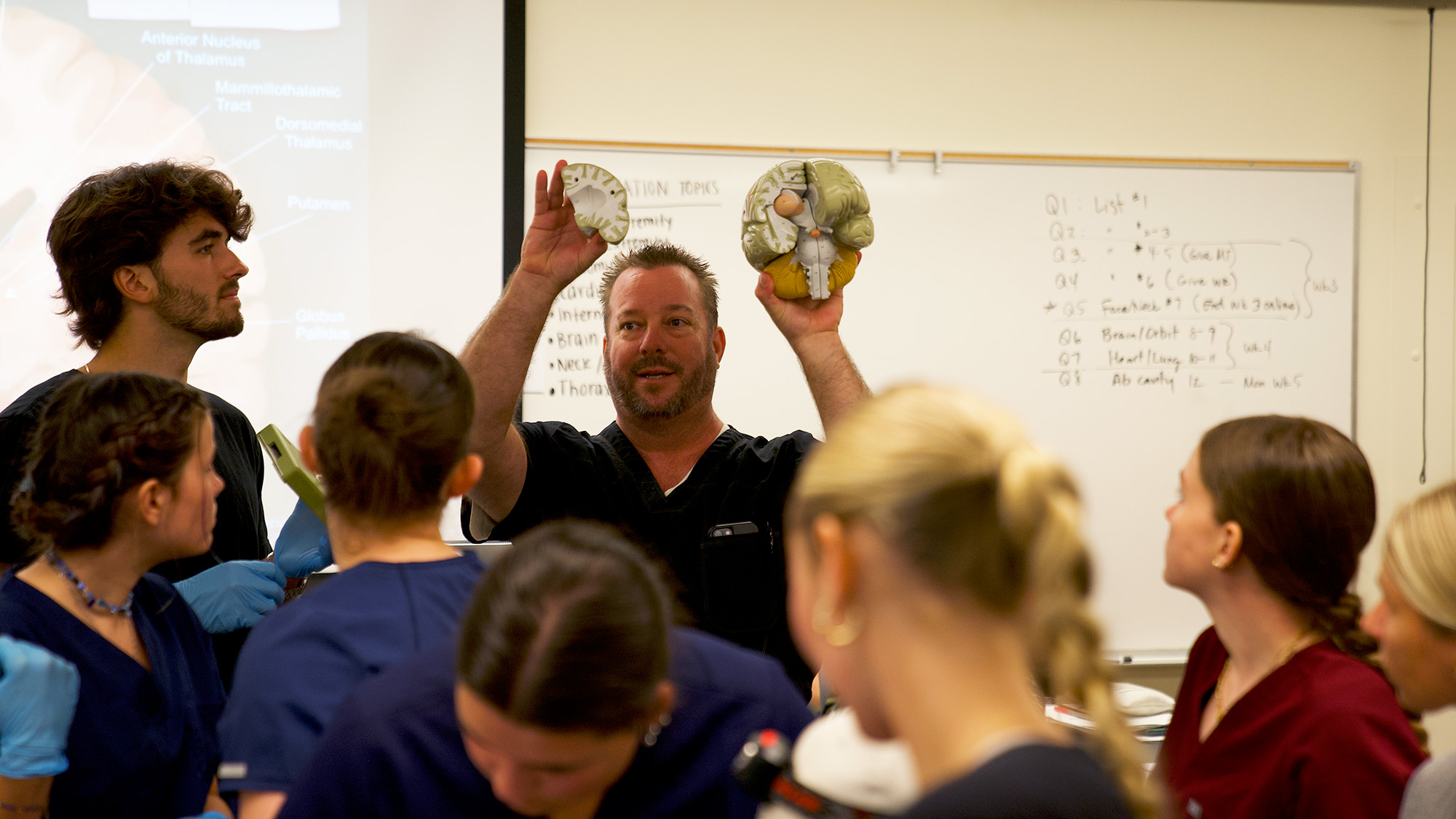Delving Into Human Anatomy: The Unparalleled Experience of Cal Poly's BIO S411 Course

By: Brian Fischer
Michael Jones serves as the director of the Human Anatomy Lab (HAL) at Cal Poly and instructs the Bio S411 course. The HAL is home to Cal Poly’s unique human cadaver program and upholds the ethical use of human donations for research and education.
Since the summer of 2019, Jones has been teaching Advanced Human Gross Anatomy through Extended, Professional and Continuing Education, guiding countless students on their journey to medical school.
The class helps prepare students for medical school, as they are presented with a rare opportunity to learn and perform human cadaver dissection and complete an advanced study of regional human anatomy. Students who have completed the Bio S411 course describe it as a transformative experience, highlighting how it deepened their understanding of human anatomy and prepared them for the challenges of the medical field.
“It was nerve-wracking at first, but once we got more into it, I never wanted to stop,” recalls former student Maddie Dodds.
“Being able to be so hands-on made learning feel like a breeze and also like a rewarding challenge. There was never a moment I wasn’t thrilled to be there learning as much as I could,” says Dodds.
During this “First Patient” experience, students are trained in willed-body donation ethics and laboratory safety, engage in clinical context discussions, and learn skillful dissections under the guidance of a licensed medical professional. Students perform a whole-body dissection that includes the musculo-skeletal and nervous tissues, vasculature, and viscera of body regions including: head, neck, torso, extremities and body cavities.
“I truly loved this course and think it was by far one of my most valuable experiences at Cal Poly,” says former student Yael Shabtay.
Examining a cadaver was eye-opening for many reasons. “One of the greatest takeaways from this course is that everyone is so unique and different,” says Myrthe Bellers.
Many students like Eric Fox saw the class as a great opportunity to expand their resume as a pre-med student.
“BIO S411 taught me more than any class I have ever taken,” Fox explains. “However, it wasn’t just a vast amount of material that I walked away with. I was also taught how to learn. The greatest lesson from the course was how to use the materials around me to discover things on my own.”
Preparing students for a career in the medical field is a major appeal for students and has deeply impacted those who have taken it.
“This is one of the best classes on campus and being able to work closely with Dr. Jones has definitely changed the trajectory of my professional life,” says Dodds.
This hands-on course is a vital in-person experience, providing necessary preparation for those impacted by COVID-19.
“As a result of nearly half of my college experience being during COVID-19, I do sometimes worry about how prepared I will be for the material of medical school,” says Shabtay. “However, as a result of this program, I feel much more confident in my anatomy knowledge and much more prepared for any future anatomy courses.”
Bellers, who is returning to co-teach the course this summer at Cal Poly, shared:
“It gave me the confidence that although I am young, I am capable of whatever I set my mind to.”
In addition to pre-med prep, the course touches students in ways they never expected.
“As someone who has always been interested in women’s health, I quite literally teared up when I saw these organs,” said Shabtay. “It was moments like this that I’d remember that while we all share nearly the same organs, everyone has a different story.”
One of the most impactful memories came from uncovering an enlarged liver.
“I was hit with the realization that the individual in front of me had likely donated their body in the hopes that students could learn from the disease that caused them pain,” says Fox. “Our entire class worked hard to honor the individual that gave us this opportunity.”
At the end of the five-week program, students gathered for a closing tribute. This emotional ceremony underscored the human aspect of their studies and reinforced the ethical responsibility that comes with working in the medical field.
“As an incoming medical student, I will be more prepared than my peers because of BIO S411,” says Fox. “This class must never leave Cal Poly, as I truly believe it achieves the ideals of the institution.”

 | EPaCE
| EPaCE